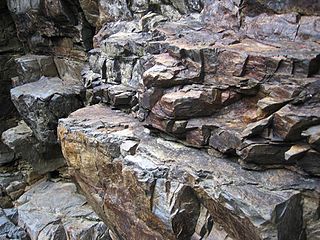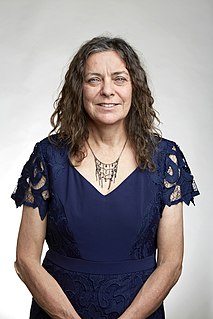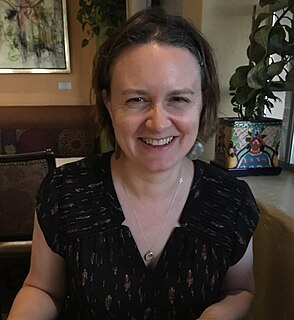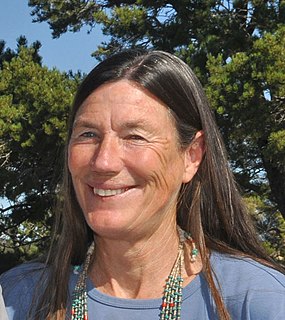Related Research Articles

Hydrology is the scientific study of the movement, distribution, and management of water on Earth and other planets, including the water cycle, water resources, and environmental watershed sustainability. A practitioner of hydrology is called a hydrologist. Hydrologists are scientists studying earth or environmental science, civil or environmental engineering, and physical geography. Using various analytical methods and scientific techniques, they collect and analyze data to help solve water related problems such as environmental preservation, natural disasters, and water management.
Environmental geology, like hydrogeology, is an applied science concerned with the practical application of the principles of geology in the solving of environmental problems created by man. It is a multidisciplinary field that is closely related to engineering geology and, to a lesser extent, to environmental geography. Each of these fields involves the study of the interaction of humans with the geologic environment, including the biosphere, the lithosphere, the hydrosphere, and to some extent the atmosphere. In other words, environmental geology is the application of geological information to solve conflicts, minimizing possible adverse environmental degradation or maximizing possible advantageous conditions resulting from the use of natural and modified environment. With an increasing world population and industrialization, the natural environment and resources are under high strain which puts them at the forefront of world issues. Environmental geology is on the rise with these issues as solutions are found by utilizing it.

Groundwater is the water present beneath Earth's surface in rock and soil pore spaces and in the fractures of rock formations. About 30 percent of all readily available freshwater in the world is groundwater. A unit of rock or an unconsolidated deposit is called an aquifer when it can yield a usable quantity of water. The depth at which soil pore spaces or fractures and voids in rock become completely saturated with water is called the water table. Groundwater is recharged from the surface; it may discharge from the surface naturally at springs and seeps, and can form oases or wetlands. Groundwater is also often withdrawn for agricultural, municipal, and industrial use by constructing and operating extraction wells. The study of the distribution and movement of groundwater is hydrogeology, also called groundwater hydrology.

Hydrogeology is the area of geology that deals with the distribution and movement of groundwater in the soil and rocks of the Earth's crust. The terms groundwater hydrology, geohydrology, and hydrogeology are often used interchangeably.
The Jackson School of Geosciences at The University of Texas at Austin unites the Department of Geological Sciences with two research units, the Institute for Geophysics and the Bureau of Economic Geology.

Earth science or geoscience includes all fields of natural science related to the planet Earth. This is a branch of science dealing with the physical, chemical, and biological complex constitutions and synergistic linkages of Earth's four spheres, namely biosphere, hydrosphere, atmosphere, and geosphere. Earth science can be considered to be a branch of planetary science, but with a much older history. Earth science encompasses four main branches of study, the lithosphere, the hydrosphere, the atmosphere, and the biosphere, each of which is further broken down into more specialized fields.

Jillian Fiona Banfield is Professor at the University of California, Berkeley with appointments in the Earth Science, Ecosystem Science and Materials Science and Engineering departments. She leads the Microbial Research initiative within the Innovative Genomics Institute, is affiliated with Lawrence Berkeley National Laboratory and has a position at the University of Melbourne, Australia. Some of her most noted work includes publications on the structure and functioning of microbial communities and the nature, properties and reactivity of nanomaterials.
Lynn Walter Gelhar is an American civil engineer focusing in hydrology and is currently Professor Emeritus at Massachusetts Institute of Technology. He is recognized for pioneering research in stochastic subsurface hydrology, has leading research in the area of field-scale contaminant transport experiments, and has extensive experience on the hydrologic aspects of nuclear waste disposal.
Shirley Jean Dreiss (1949–1993) was an American scientist working in the fields of hydrology and hydrogeology. After gaining her PhD from Stanford University, she joined the faculty of the University of California at Santa Cruz, where she became Professor and Chair of the Department of Earth Sciences. She made important contributions to the understanding of water flow through karst aquifers and fluid flow in subduction zones. At the time of her early death in a car accident, she was studying the groundwater system of Mono Lake in California. She was awarded the Birdsall Distinguished Lectureship from the Geological Society of America, which was renamed the Birdsall-Dreiss Distinguished Lectureship after her death.

Jennifer McIntosh is hydrogeologist and professor of Hydrology and Atmospheric Sciences, University Distinguished Scholar at the University of Arizona. In 2019 she was named a Geological Society of America Fellow.
Holly Michael is an American hydrogeologist and Associate Professor of geology at the University of Delaware's College of Earth, Ocean, and Environment.

Kamini Singha is a Professor in the department of Geology and Geological Engineering at the Colorado School of Mines, where she works on questions related to hydrogeology.

Audrey Hucks Sawyer is an American hydrogeologist and Assistant Professor of Earth Science at Ohio State University. Her work has focused on quantifying the role of groundwater - surface water interactions in transporting nutrients, contaminants, and heat in rivers and coastal settings. Sawyer has won multiple awards, including the National Science Foundation CAREER Award in 2018 and the Kohout Early Career Award in 2016.
Carol Denison Frost is an American isotope geologist, petrologist and professor. Her primary research focuses on the evolution of the continental crust and granite petrogenesis. She has spent over thirty-five years investigating the geologic history of the Wyoming Province and the formation and geochemical classification of granite. Other contributions include isotopic fingerprinting of natural waters, including water associated with energy production. She served as Director of the Earth Sciences Division, National Science Foundation, from December 2014 to January 2018.

J. Jaime Gómez-Hernández is a Spanish Civil Engineer specialized in Geostatistics and Hydrogeology. He is a full professor of Hydraulic Engineering at the School of Civil Engineering of the Technical University of Valencia. He was conferred the William Christian Krumbein Medal in 2020 from the International Association for Mathematical Geosciences. He also received the 2020 Prince Sultan bin Abdulaziz International Prize for Water, in the field of Groundwater.

Abhijit Mukherjee is an Indian professor, scientist and currently Professor of Geology and Geophysics and the School of Environmental Science and Engineering of IIT Kharagpur. He has been selected for Shanti Swarup Bhatnagar Prize for Science and Technology in 2020 in the field of Earth Atmosphere Ocean and Planetary Sciences.
Bridget R. Scanlon is an Irish and American hydrogeologist known for her work on groundwater depletion and groundwater recharging, and of the effects of climate change and land usage patterns on groundwater. She is a senior research scientist in the Bureau of Economic Geology at the University of Texas at Austin, where she is head of the Sustainable Water Resources Program. Her research has included the use of GRACE satellite data to compare drought conditions in Texas and California.
Beth L. Parker is a professor at the University of Guelph known for her research on groundwater contaminants and the remediation of groundwater systems.
Karen H. Johannesson is an American geochemist and professor in the School for the Environment at the University of Massachusetts Boston and the Intercampus Marine Sciences Graduate Program of the University of Massachusetts System. She teaches geochemistry and has expertise in environmental geochemistry, biogeochemistry, trace element speciation, geochemical modeling, chemical hydrogeology, reaction path and reactive transport modeling.

Laura J. Crossey is an American hydrologist and geochemist and Distinguished Professor of Earth and Planetary Sciences at the University of New Mexico (UNM). Crossey is part of UNM's Sustainable Water Resources Grand Challenge team, which studies water and climate in New Mexico and other arid regions. She has studied springs and groundwater in areas including the Western Desert of Egypt, Australia's Great Artesian Basin, Tibet, the Middle Rio Grande Basin and the Grand Canyon.
References
- 1 2 3 4 5 6 7 8 "Jean Bahr". Department of Geoscience. Retrieved 2019-05-11.
- 1 2 Matt Bewig (2017-05-05). "Chair of the Nuclear Waste Technical Review Board: Who Is Jean Bahr?". AllGov. Retrieved 2019-05-11.
- 1 2 "Interview with Jean Bahr: Education in Hydrogeology". environmentalprograms.net. Retrieved 2019-05-11.
- ↑ "Career Profile: Jean Bahr". Career Profiles. Retrieved 2019-05-11.
- ↑ Clark, Martyn P.; Bahr, Jean A.; Bierkens, Marc F. P.; Cai, Ximing; Hogue, Terri S.; Luce, Charles H.; Lundquist, Jessica D.; Mackay, D. Scott; Meerveld, H. J. (Ilja) van (2017). "A vision for Water Resources Research" (PDF). Water Resources Research. 53 (6): 4530–4532. Bibcode:2017WRR....53.4530C. doi:10.1002/2017WR021050. ISSN 1944-7973.
- ↑ "Jean Bahr". American Geosciences Institute. 2016-09-19. Retrieved 2019-05-11.